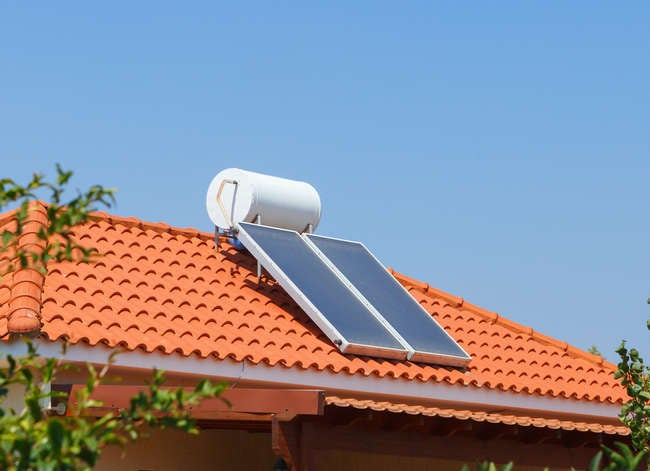

We may earn revenue from the products available on this page and participate in affiliate programs. Learn More ›
First, understand your electric bill

What you pay for your electric bill depends on several factors. There are standing charges for being connected to the infrastructure, and various added surcharges and taxes. These parts of your bill, you can’t do much about. The rest of your electric bill is what’s called “usage.” In other words, the electricity that you actually use. This is where you can affect change and lower your bill.
Your electricity usage is measured in kilowatt hours, and you are billed a certain amount for each kilowatt hour that you use. Running an appliance rated at 1000 watts (1 kilowatt) for 1 hour will use 1 kilowatt hour of electricity. So, it’s worth knowing how much energy everything you plug into the wall consumes. You should also educate yourself about your electric company’s rates. Per kilowatt charges can change depending on the season and time of day. So, get informed, and be a smart consumer.
What are you waiting for? Click through to see how you can make simple changes that will lower your electric bill.
Monitor your energy use
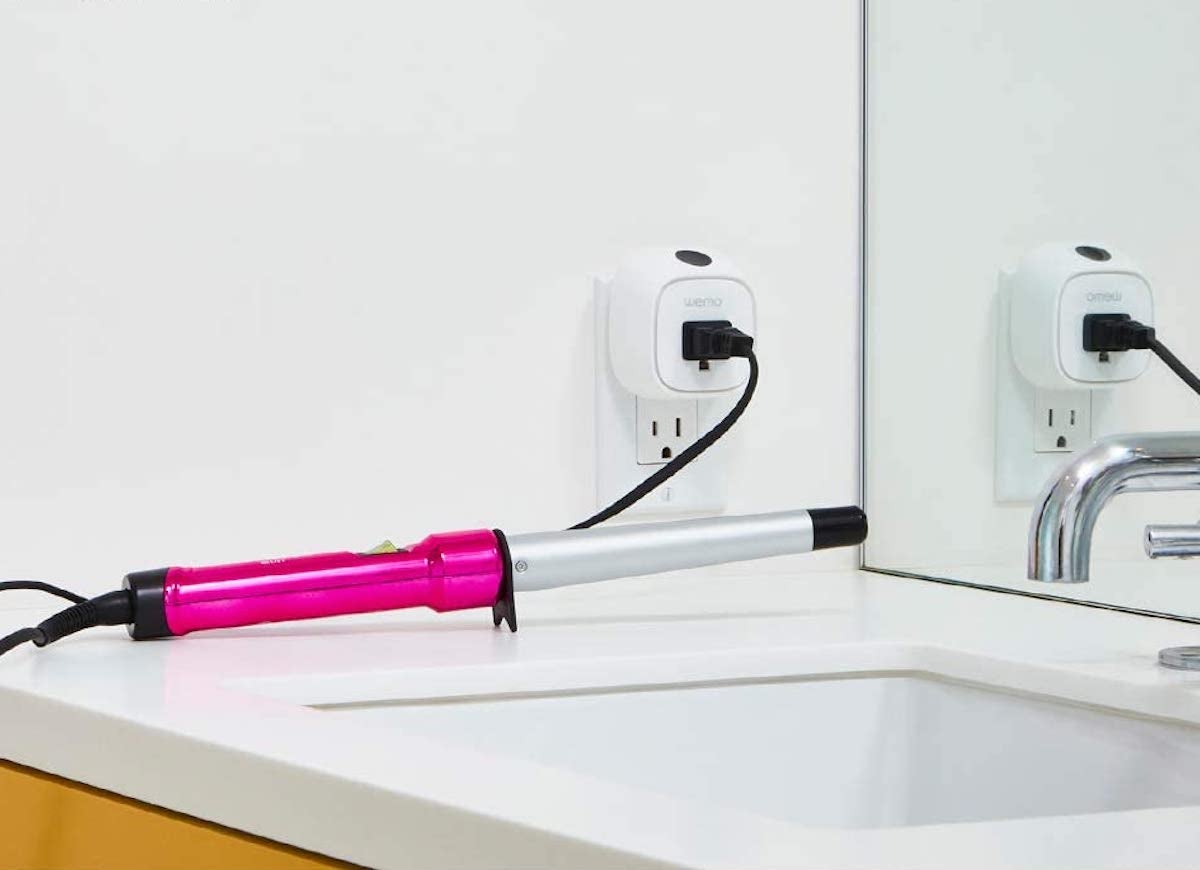
If you’re really serious about cutting energy costs, then your first step is to determine which of the items you own are the most power hungry. Air conditioners are notorious energy hogs, but what else in your home might be driving up the monthly bill? There’s more than way to do this detective work, but here’s an easy approach: Plug any electronic device into the Wemo Insight Smart Plug, and you can then monitor its usage via smartphone app to learn what it’s costing you.
Run appliances at night

One of the easiest ways to save money on electricity is to run your appliances at night. Because everyone’s awake and using their stuff during daytime hours, utility companies tend to charge more during these peak times. Rates are usually significantly lower during off-peak hours. Check with your utility company to find out your local peak and off-peak rates.
Related: These are the Biggest Electricity Hogs in Your Home
Be smart about your lighting
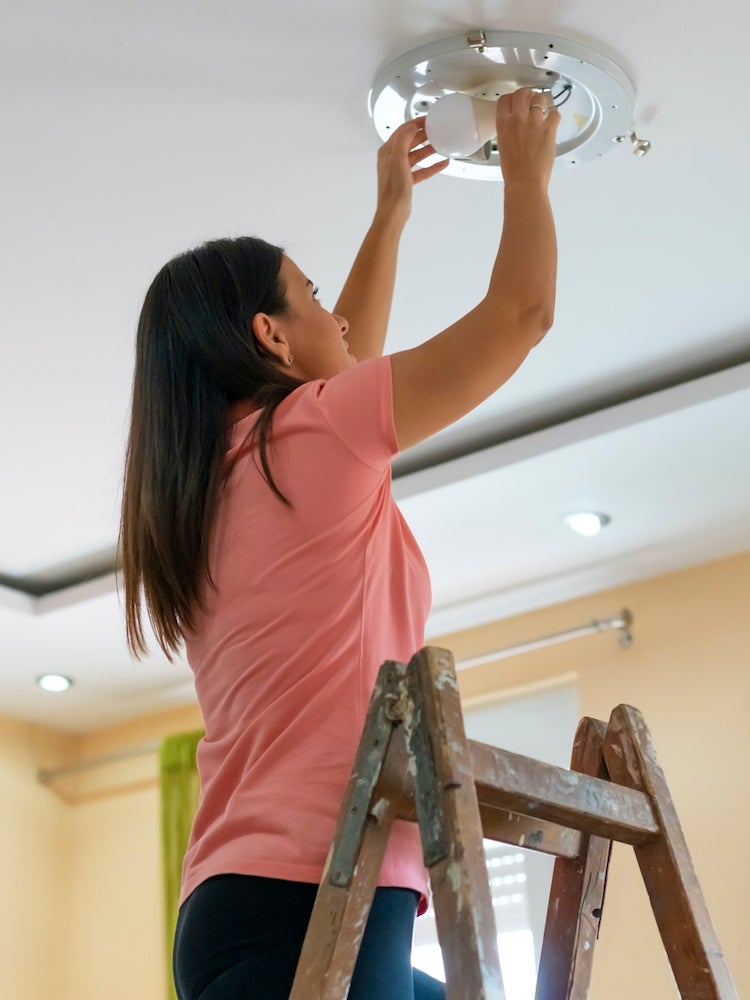
Make better choices when it comes to your house’s lighting—inside and out. By now you’re probably familiar with LED bulbs, but if you haven’t made the transition yet do it now. LED light bulbs use at least 75 percent less energy, and last 25 times longer than incandescent ones. You can take it even a step further by upgrading to LED smart light bulbs. This new type of bulb typically allows you to control the lights around your house by using your phone or voice commands, and brands like C by GE make it a piece of cake to install. Outside lighting is also important. Choose solar lights to brighten your backyard and pathways rather than depending on electricity.
Change your filters
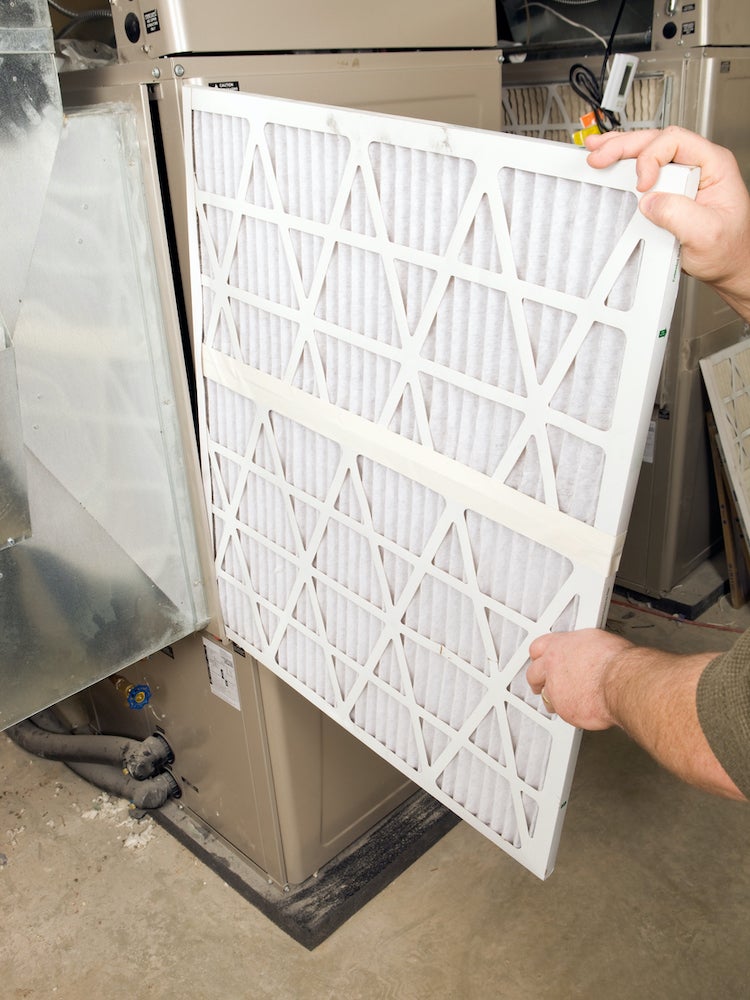
In order to perform efficiently, your home’s furnace needs regular maintenance. Not only can a dirt-clogged filter potentially cause damage to the system as a whole, but it also causes the furnace to work harder to pump air throughout the house. Changing the filter about once a month will help reduce the amount of energy needed to run the furnace, hence cutting down your energy bill.
Related: Change Filters Frequently to Optimize Furnace Efficiency
Wash in cold water
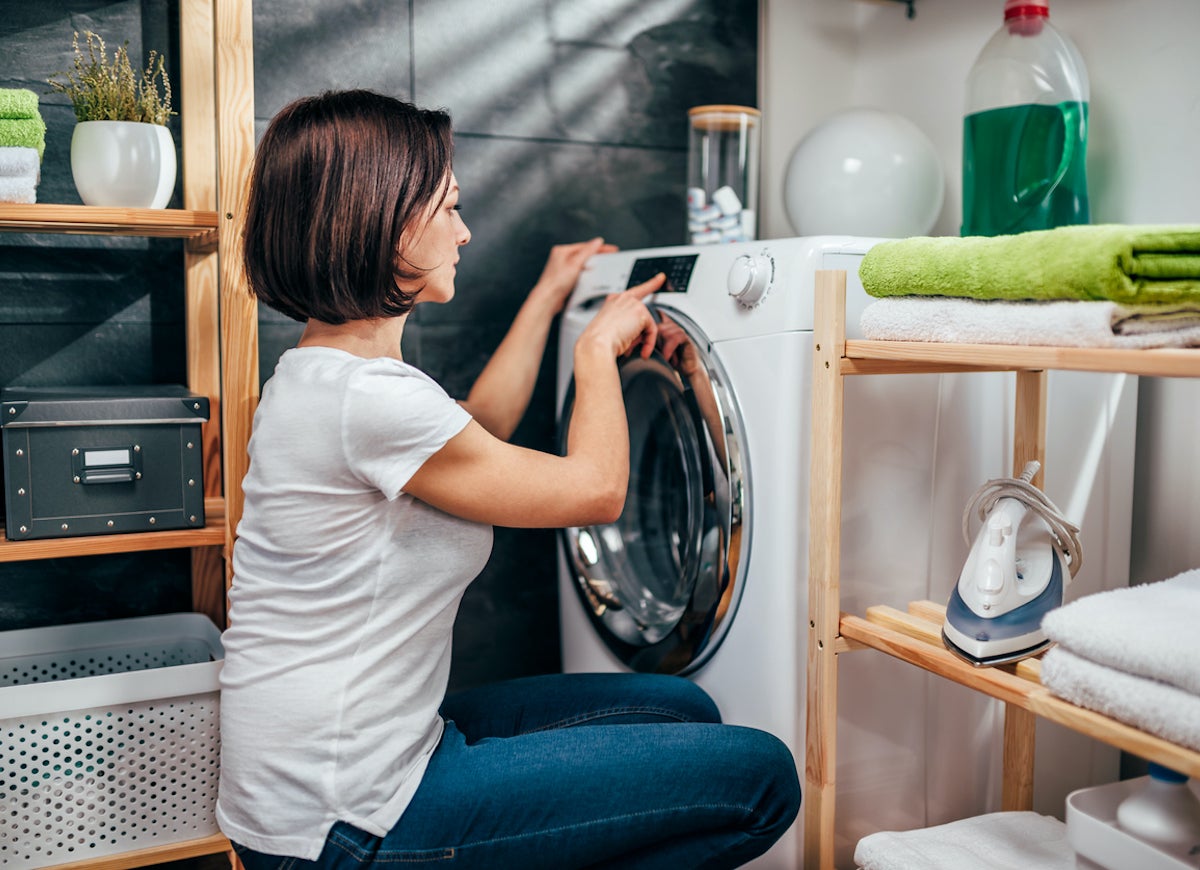
Don’t wash your energy dollars down the drain! To save money, wash clothes on the cold setting and line-dry when you can. If you do need to machine-dry your clothes, don’t overfill. If you don’t leave enough space for the hot air to circulate, your laundry will dry more slowly, resulting in a pricier laundry cycle.
Maintain an efficient fridge
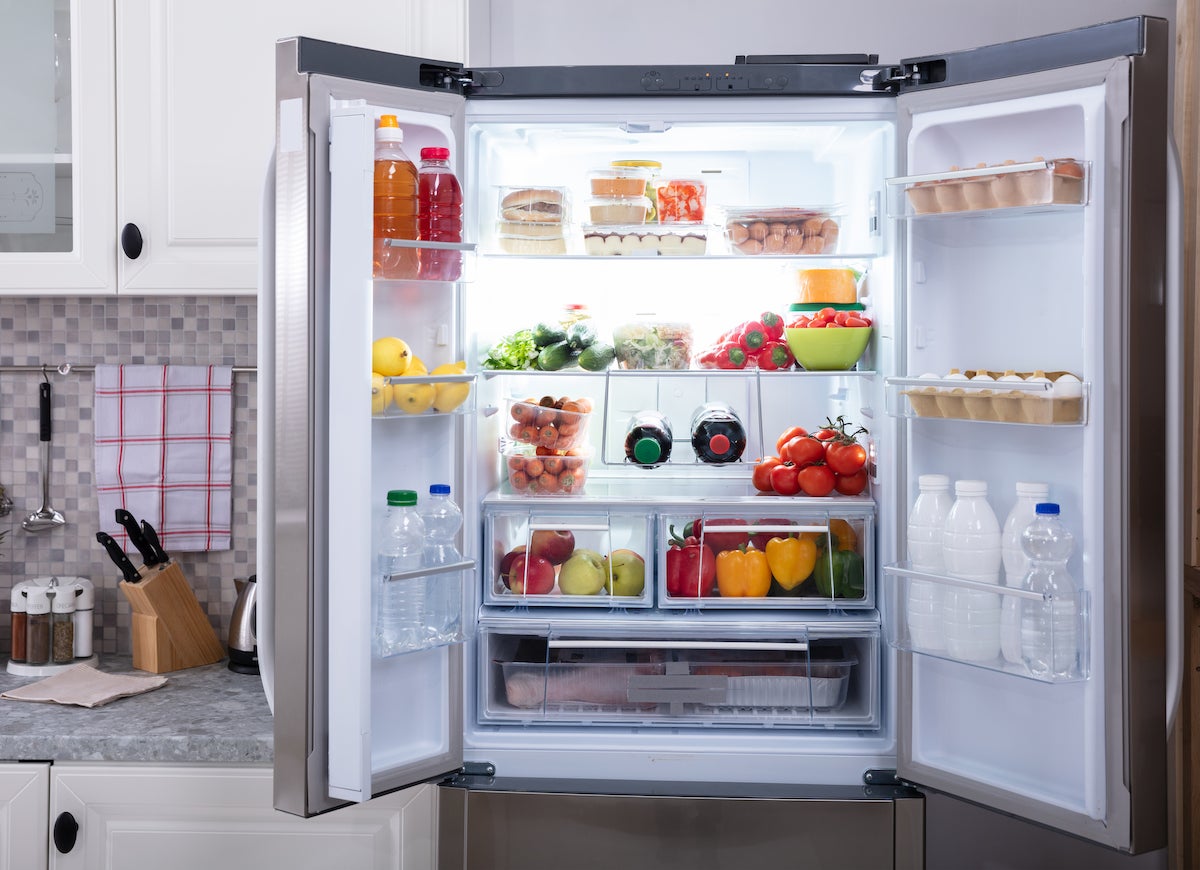
Keep your energy usage low by running your fridge at maximum efficiency. For starters, set your temperature to the recommended setting of 37°F for the fridge and 0°F for the freezer—any colder and you’re just wasting power. Your fridge should be about three-quarters full—it takes less power to keep a full fridge cold, but you need to allow enough room for air to circulate. Clean the coils on the back of the fridge several times each year—and resist the temptation to store things up top as these items can prevent hot air from escaping and cause your unit to work overtime.
Related: These Are the Ideal Temperatures for Your Refrigerator and Freezer
Watch your wash cycle
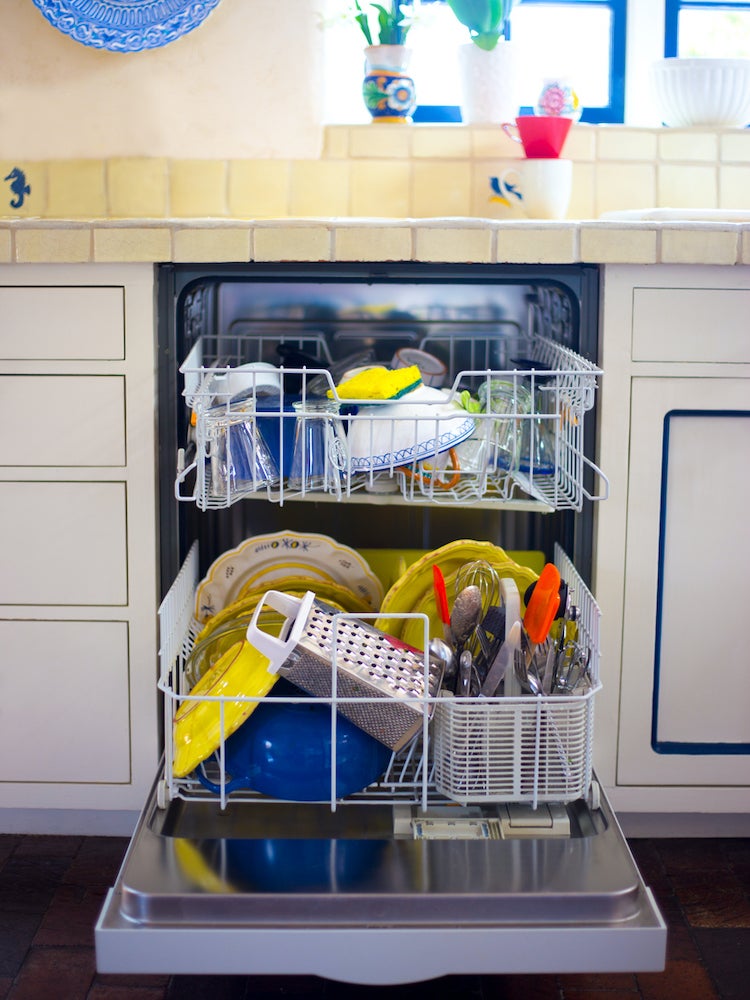
Wash dishes the smarter way: Use short, eco-friendly cycles for all but the very dirtiest loads, and try to hold off starting until the load is full. Then, when the wash cycle is finished, set the appliance to air-dry rather than heat-dry—this easy move can cut the appliance’s electricity use by 15 to 50 percent. Don’t have the option built in? Simply turn off the dishwasher after the final rinse and open the door.
Related: Your Dishwasher Can Do Better: 9 Tips to Boost Performance
Insulate properly

Without proper insulation, all the money you spend heating and cooling your home could escape through windows, doors, or the roof. Time and money spent weatherstripping and insulating is well spent!
Install a solar water heater
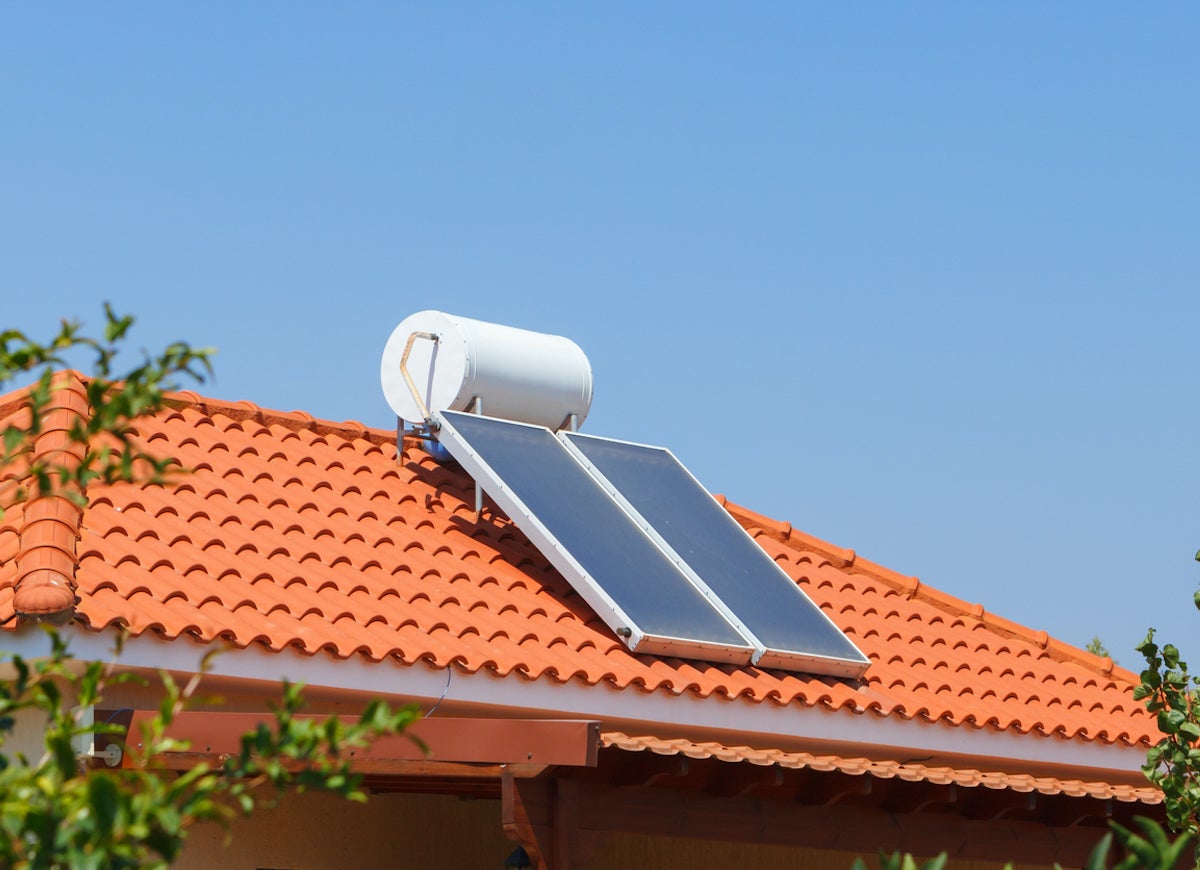
One of the easiest ways to save on your bills is to install your own solar hot water heater. Water heating is the second biggest consumer of home electricity, so it makes sense to install the system now. This solar upgrade is designed to supplement your existing electric system, so even in cloudy weather, you can still enjoy a hot shower.
Give the AC a break
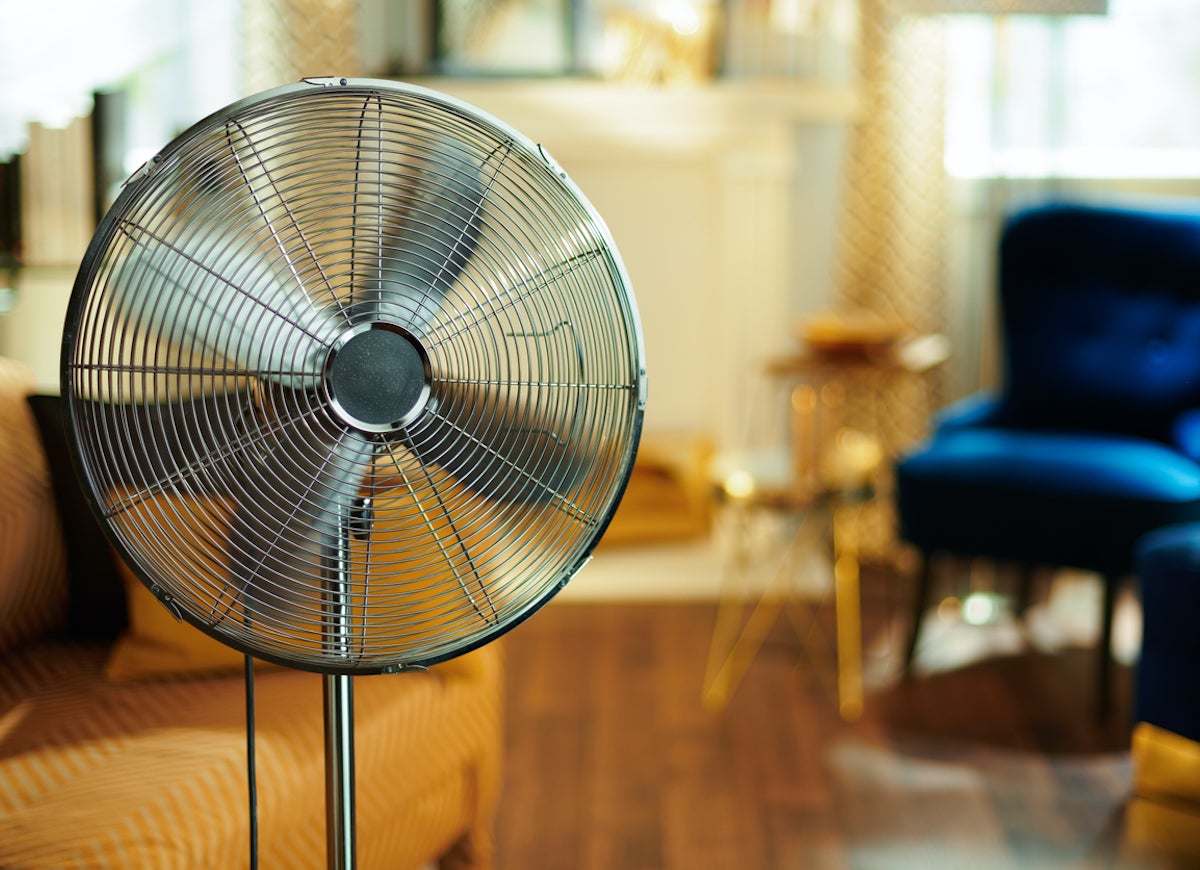
Try to give the AC a rest. Before turning it on or cranking it to frigid temperatures, employ other methods to keep cool. Shut the shades and close the curtains to block the sunlight from beaming into the room. Turn on the ceiling fan or electric fan to create a breeze affect—however, make sure you turn the fan off when you leave since it is only blowing air and not cooling a room. And of course, don’t leave the AC on when nobody is at home.
Stick to a schedule
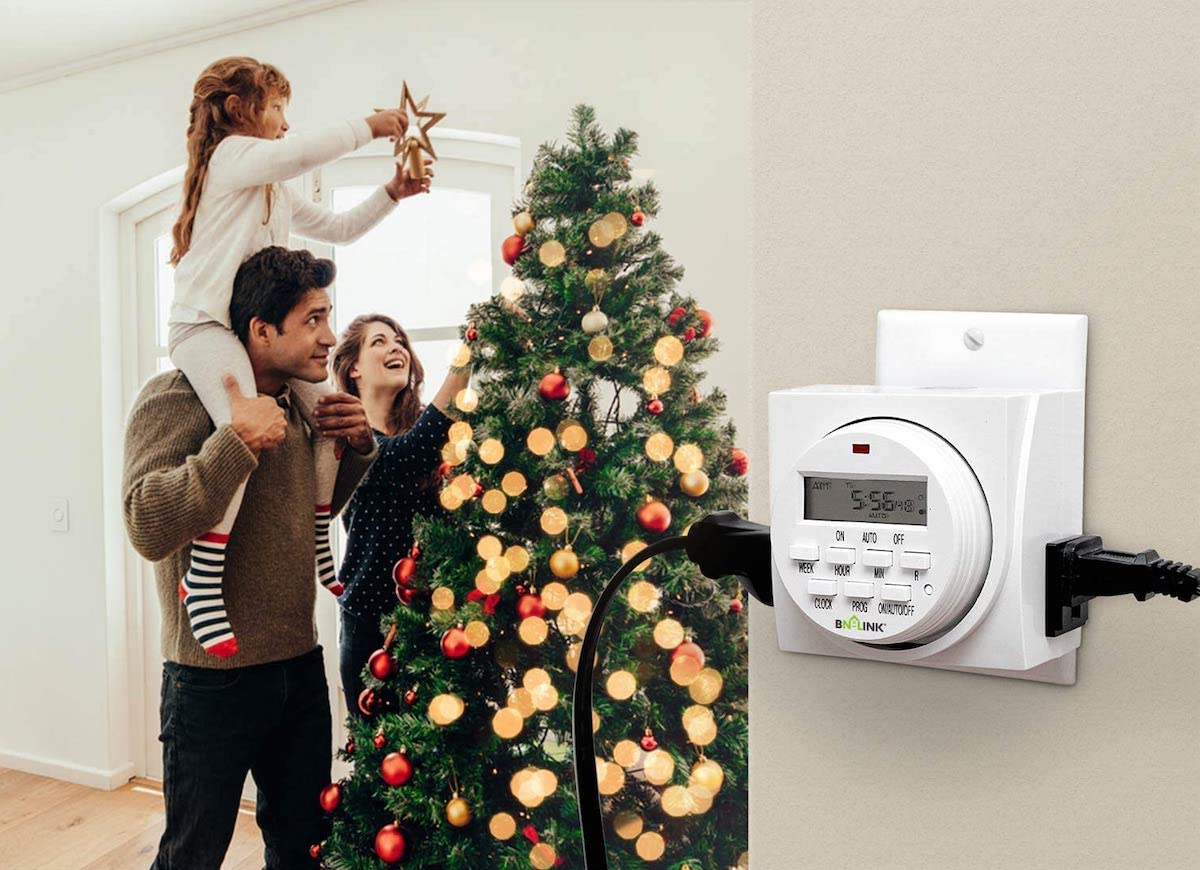
One effective way to capitalize on lower off-peak electricity rates is to put suitable electronics or appliances on a simple outlet timer like this one from Amazon. You may have used a similar gizmo in the past to put your home’s lighting on a schedule, perhaps before leaving on vacation. Consider this strategy just another way that an outlet timer can keep you from getting robbed!
Cut Costs

Every little change counts when it comes to saving money on your electric bill.

Everything You Need for a Lush and Healthy Lawn
Keeping your grass green and your plants thriving doesn’t just take a green thumb—it starts with the right tools and supplies.